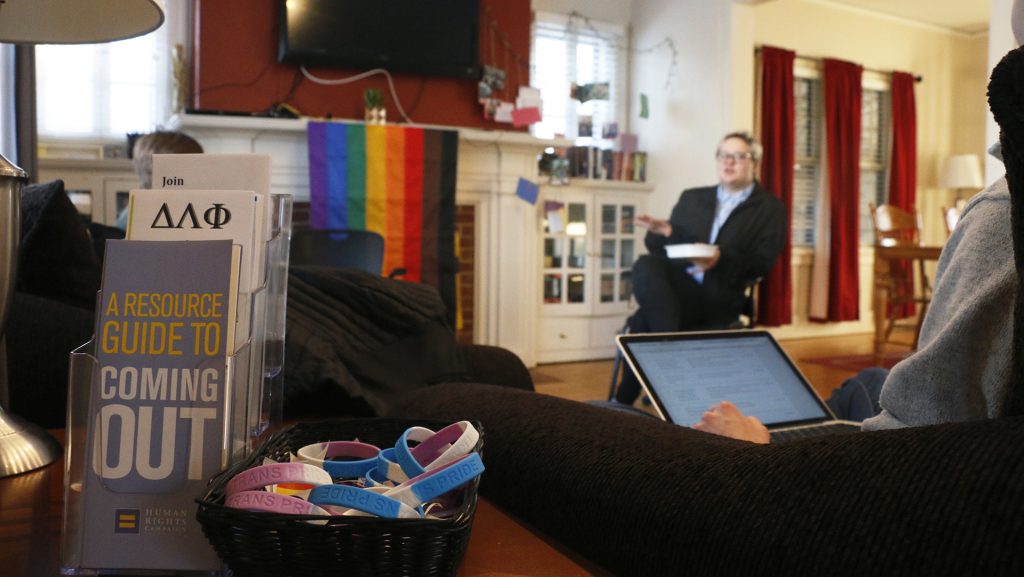For transgender students on campus, three organizations offer resources to support them through their time at the university.
Student Legal Services, Student Health & Wellness, and the University of Iowa LGBTQ Clinic provide a variety of resources to transgender students at the UI.
Representatives from the three organizations spoke in depth about the services they offer Wednesday during an event in partnership with the UI Trans Alliance.
The three presenters explained the legal and health services available to better the lives of transgender individuals on campus.
RELATED: Laursen: Iowa law must protect transgender people
Student Legal Services assistant attorney Amanda Elkins advised any student looking for legal advice to contact Student Legal Services. She went through some of the processes required in order to legally change a name on official documents.
Elkins said one of the things her office is most known for is the Trans Support Fund. The fund is a collaboration among UI Trans Alliance, Dean of Students Office, UI Student Government, and Student Legal Services.
“There’s money set aside every year in the Dean of Students Office,” Elkins said. “The fund covers filing fees, court costs, and attorney fees for legal name changes.”
The fund specifically covers the $185 filing fee to legally change a name. Student Legal Services is available to meet with students to assist with the process.
“We help students with the name change, and we also help them with the next steps: birth certificates, driver’s license, Social Security card, and more,” Elkins said.
Clinical Associate Professor of family medicine at the LGBTQ Clinic Katherine Imborek described the wide variety of services offered by the clinic.
She said the clinic typically sees new patients on Tuesday nights, because the service has had such a high volume of patients since opening in October 2012.
RELATED: UI Trans Alliance recognizes lives lost to anti-transgender violence
“In that time frame, we’ve seen about 500 to 600 unique patients, and about 80 percent of them identify as trans or gender nonconforming,” Imborek said. “Most of them are driving quite a far way to see us; 80 to 90 percent of our patient population is from outside of Johnson County.”
The LGBTQ Clinic provides such services as routine physical exams, hormone therapy, gynecological services, post-surgical care, and referral to specialty providers, among others.
Imborek said the clinic has a close partnership with the UI College of Education family and couple-therapy program. There is a practicum program in which Ph.D. students offer therapy sessions free of charge.
Jennifer Johnson, a physician at Student Health, described the resources available to all UI students.
“Recently, we have partnered with the UI Counseling Service,” she said. “We’re trying to make it easier to go between Counseling Service and us.”
Johnson said that at the moment, she is the only physician at Student Health who will provide hormones to transgender students.



